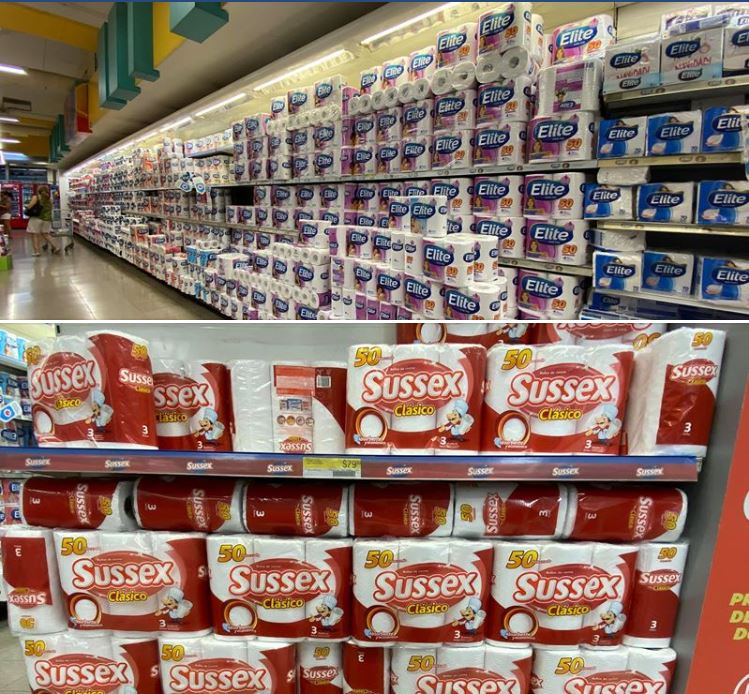There's only one subject that matters in financial markets at the moment, and this edition features updated views on coronavirus from leading experts such as Roger Montgomery, Hamish Douglass, Charlie Jamieson and Justin McCarthy.
Much of the market reaction to coronavirus seems overstated, with the S&P/ASX200 down 20% from recent highs. Nevertheless, habits are changing in many parts of the world. People are working from home, schools are closing, hoarding is common, events and travel are being cancelled and supply chains are breaking down. Markets fall by the elevator and rise by the stairs during severe uncertainty, but volatility is a cost for the long-term benefits of holding equities.
It feels especially strange as I am writing this from 12,000 kilometres away in Buenos Aires, and South Americans don't seem overly worried about the virus. The Australian media coverage implies international travel is almost at a standstill, but every plane I've flown on recently has been full. There is no confirmed inflight transmission of the virus anywhere in the world. Going through three airports in the last week, few passengers were wearing masks, and there were no masks in the cities. I just shared an expedition ship for 10 days in Antarctica with 200 passengers and crew from all over the world and nobody wore a mask at any time.
Australia's toilet paper panic looks weird from afar. There's no equivalent here with packed supermarket shelves, and there is not, as Alan Kohler says, 'a worldwide run on bog rolls'. Come on. Australia imports only 1% of its packaged toilet paper and industry experts say shelves would be fully stocked in two days if people stopped panic buying. There's no shortage of pulp either locally or imported. At least we know what to bring back as presents, and perhaps the second picture below will give someone a royal flush.

We know little about the long-term effect of the virus, but investors want to understand the possible impact on their portfolios. As Ray Dalio, Chairman of Bridgewater, said on LinkedIn:
"I don’t like to take bets on things that I don’t feel I have a big edge on, I don’t like to make any one bet really big, and I’d rather seek how to neutralise myself against big unknowns than how to bet on them. That applies to the coronavirus. Still, there’s no getting around having to figure out what this situation is likely to mean and how we should deal with it."
The Johns Hopkins University Coronavirus Global Cases Monitor provides an interactive dashboard. At the time of writing, it shows 102,471 confirmed cases (80,651 in Mainland China) but only 3,491 deaths, of which 532 were outside China. Most of the deaths are older, vulnerable people. It doesn't yet sound worthy of a global panic, especially in the context of what the world already deals with in other ailments such as influenza. As Time Magazine records for US data from the Center for Disease Control and Prevention (CDC) last year:
"In total, the CDC estimates that up to 42.9 million people got sick during the 2018-2019 flu season, 647,000 people were hospitalized and 61,200 died. That’s fairly on par with a typical season, and well below the CDC’s 2017-2018 estimates of 48.8 million illnesses, 959,000 hospitalizations and 79,400 deaths."
We will need to learn to live with corona in the same way we cope with the flu. Morningstar's US analysts have concluded:
"We expect coronavirus to resemble a severe but manageable flu with treatments available soon."
But the reality is that global trade is falling and travel arrivals into Australia are down significantly. Flights are being cancelled from key markets, including crucially for Australia, from China. We rely on 1.4 million Chinese visitors a year, with 268,000 temporary visas for Chinese people last year, including 134,000 for students.
It will be difficult to avoid a recession. After a decade of central bank-inspired complacency, the market is rethinking whether stocks and bonds are appropriately priced for the current risks.
This week, Roger Montgomery dives deeply into the corona checking in specific countries, moving beyond the day-to-day market reactions to determine a buying entry point. Emma Rapaport reports on Hamish Douglass's latest Investor Evening, where he encouraged a calm and rational approach to market turmoil, as well as discussing his own portfolio.
In bond markets, where quality government securities have rallied strongly, Charlie Jamieson warns that many weaker corporate names are in for a tough time. Justin McCarthy and Brad Newcombe show the short-term opportunities revealed by panic in the hybrid market.
A reminder that Ashley Owen produced an historical context on previous viruses last week.
Bruce Gregor has checked 35 years of data on how Australian shares react to US stockmarket rises and falls, and provides a useful rule of thumb for future reporting, while Gemma Dale explains how SMSF investors are changing their asset allocations.
Finally, after spending 10 days in Antarctica on an expedition with many other people ticking off their bucket list items, I reflect on how retirement can be a reward for a lifetime of hard work. It's not only travel, but helping children into homes is a priority for those who can afford it.
Graham Hand, Managing Editor
For a PDF version of this week’s newsletter articles, click here.